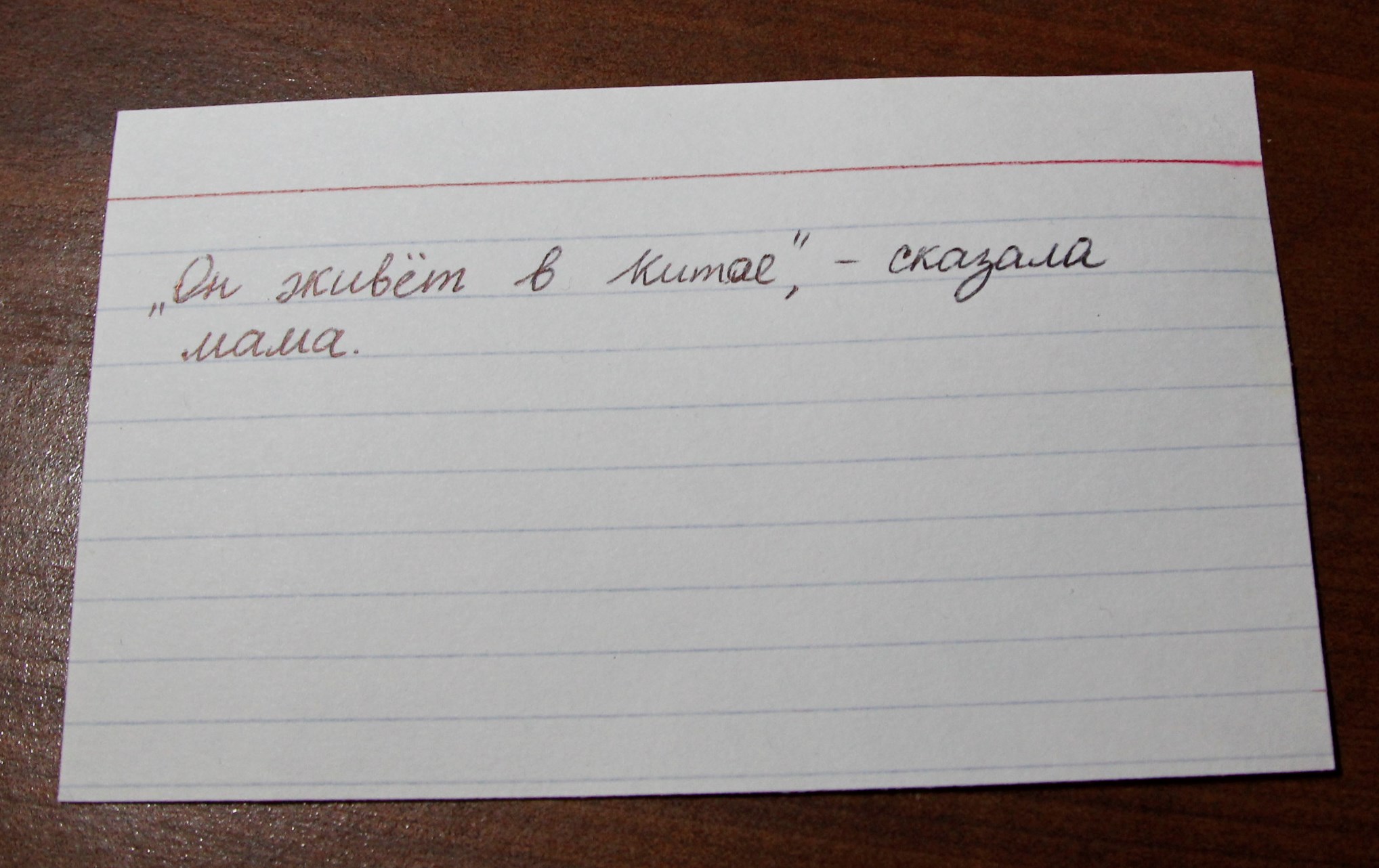Tricky Russian Typography – Part I Posted by Maria on Sep 21, 2016 in language
We have talked about keyboarding in Russian and some peculiarities of Russian punctuation on this blog. Let us expand on these subjects with an overview of characters that may not be easy to enter on a keyboard.
Generally speaking, until very recently Russian literacy dwelled primarily in the handwritten domain. That is, of course, books were around and typesetters knew their professional standards. However, a lot of communication, be it letters, school notes, teachers’ notes on the board, or fiction manuscripts tended to be handwritten. Whatever documents had to be entered on a typewriter were usually outsourced to specially-trained typists (машинистка — this was typically a women’s occupations) and used simplified punctuation. Since the 1990s, computers have started appearing in Russian households, but writing was still largely taught as penmanship, with interesting consequences for typing.
Direct Speech
Direct speech (прямая речь) is one of the more complex constructions in Russian. Note the patterns in the following examples:
- “Я прожила не свою жизнь”, ― сказала бабушка перед смертью. (“I have lived someone else’s life,” Grandma said before she died.) [Марина Палей. Поминовение (1987)]
- “Сын, ― сказал он, ― я бы хотел знать, что ты сам о себе думаешь?” (“Son,” he said, “I’d like to know what you think about yourself.”[И. Грекова. Фазан (1984)]
- “Мама, с тётей Мари что-то случилось, она не говорит, ― сказала Катя. ― Я воспитала мальчиков, и они молчат”. (“Mom, something happened to aunt Marie, she won’t say,” Katya said. “I raised the boys, and they are quiet, too.”) [И. Грекова. Под фонарем (1963)]
- Георгий Товстоногов сказал: «Неужели мы не позовем автора?» (Georgy Tovstonogov said, “Are we not going to invite the author?”) [Вячеслав Суриков, Евгений Каменькович. Страх внутри // «Эксперт», 2015]
Basically, if the narration interrupts or follows an inline quote, the latter is enclosed in quotation marks and followed by a dash. For the same situation when the direct speech starts its own paragraph, dashes are used, like in the excerpt from The Master and Margarita below.
− Дайте нарзану, − попросил Берлиоз.
− Нарзану нету, − ответила женщина в будочке и почему-то обиделась.
− Пиво есть? − сиплым голосом осведомился Бездомный.
− Пиво привезут к вечеру, − ответила женщина.
− А что есть? − спросил Берлиоз.
− Абрикосовая, только теплая, − сказала женщина.
− Ну, давайте, давайте, давайте!..
Translation by Diana Burgin
“Give me some Narzan water,” said Berlioz.
“There isn’t any,” replied the woman at the refreshment stand, taking umbrage for some reason.
“Got any beer?” inquired Bezdomny in a hoarse voice.
“The beer will be delivered later,” the woman answered.
“So what have you got?” asked Berlioz.
“Apricot juice, only it’s warm,” said the woman.
“Well, give us that then!…”
More detailed rules can be found in this source in Russian.
The aspect I would like to concentrate on is the ending punctuation in the quote. If the quoted sentence ends with an exclamation point, question mark or ellipsis, the punctuation mark comes before the closing quotation mark. However, if the punctuation mark is a comma, such as in the case of finished sentences or sentences interrupted with the narrator’s comments, the comma follows the closing quotation mark. Compare:
- “Он живёт в Китае”, — сказала мама.
- “Он живёт в Китае?” — спросила мама.
For generations of Russians used to mostly handwriting texts, the mutual placement of the comma and quotation mark may not be obvious because in the handwritten version they appear pretty much one below the other.
We will continue this discussion next time!

Build vocabulary, practice pronunciation, and more with Transparent Language Online. Available anytime, anywhere, on any device.




